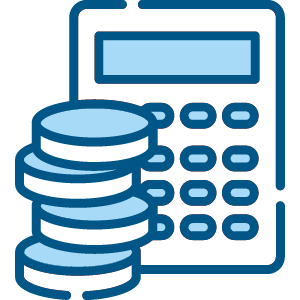
Undergraduate
Honours Bachelor of Business Administration
Ready to Lead
Gain a competitive edge in the digital economy by mastering international business strategies, analytics, and digital toolsets. In an everchanging marketplace, let the Honours Bachelor of Business Administration (BBA) degree instill in you a solid foundation that will prepare you for whatever the future brings.

Start Dates
Oct 2024

Program Length
48 Months

Majors
Digital Economy
Digital Marketing

Delivery
On-campus
UNF’s Honours BBA program has NCMA designation from CIM | Chartered Managers Canada.
Students currently enrolled in the Honours BBA program are entitled to a free Associate Membership with the association, giving UNF students the chance to belong to Canada’s chartered management and leadership association while earning their degree
Quick Find:
Talk to a Student Advisor
Career Highlights
Develop a digital fluency that enables you to navigate the digital economy and address the skills gap that currently exists in the marketplace. With an Honours BBA, you will be poised to make your mark in many industries.

Marketing

Finance

Human Resources

Accounting
Majors
Choose from two high-impact major options for your undergraduate degree.

Digital Economy
Gain in-depth knowledge in e-commerce, fintech, supply chain management, and emerging technologies
Digital Marketing
Develop a deeper understanding of digital marketing strategies, analytics, online branding, and digital asset management
Admissions

Academic Information
Applicants must meet the following minimum conditions for admission:
- Ontario Secondary School Diploma (or equivalent credential)
- Six Grade 12 4U or 4M-level courses, including Ontario 4U Math and 4U English, or their equivalent
- Minimum overall grade average of 70%
- Must meet English language proficiency requirements (if applicable)
Document Checklist
Applicants must submit:
- A completed application form
- Official high school transcript
- Official transcripts from all post- secondary institutions attended (if any)
- Proof of English language proficiency, if applicable
- Certified translations of any required documents not in English
International Information
Applicants from outside Canada must also submit:
- Documentation confirming their secondary level or high school completion was awarded, if not already indicated on official transcripts
- A credential evaluation from a recognized service, if required by the registrar
Tuition Information
Choosing to pursue a university education is a big commitment that impacts every aspect of your life – including your finances. Our fees are determined by the total cost of individual credits per academic year. All fees are listed in Canadian dollars and these rates are subject to change.
Scholarships & Awards
The Office of the Registrar dedicated more than $5 million in scholarships, awards and financial support to students in 2024. Entrance Awards are for newly admitted international and domestic students while Academic Scholarships are for those entering the second term of their program.
Financial Aid Options
UNF has partnered with organizations to help newly admitted domestic students finance their education.
$32,040
Domestic Tuition
$80,040
International Tuition
$5 Million
Scholarships & Awards
Career Outlooks
According to a study commissioned by BDC examining Canadian business trends through 2030, technology will be a dominant driver of change in the country’s business landscape. Workplaces will require different skills, as will leaders.
From retail to manufacturing, construction to health care, there will be a need for people who lead with a strong digital mindset – who recognize the need to invest in new technologies, hire tech savvy employees and increase the digital skills of existing workers.
In a KPMG study, 87% of Canada’s small to medium businesses are looking to turn data into useful insights to identify inefficiencies and reduce or control costs. The overwhelming majority (97%) agree that keeping up with tech will be central to staying ahead of competitors.

Career Paths
- Digital marketing strategist
- Financial analyst
- Compliance officer
- Market research analyst
- Process automation specialist
Salary Spotlight
- $83,045
- $102,334
- $79,060
- $90,909
- $89,375
*Source, Talent.com
Bachelor of Business Administration FAQs
Applicants from Ontario need six Grade 12 4U or 4M-level courses, including program specific course requirements of Ontario 4U Math and 4U English, or their equivalent. Your overall minimum grade average must be 70%.
You can choose from one of two high-impact majors with your BBA: digital economy or digital marketing.
There are several opportunities for you to gain practical experience through this program, including work-integrated learning opportunities and capstone research projects. Attend one of our undergraduate program webinars to learn more directly from faculty members. Find the date of our next webinar on our events page.
Fast Facts:

Start Dates:
Oct 2024

Complete in:
48 months

Delivery:
On-campus
Course Highlights
Strategic Management
Examine the governance and strategy of an organization including the development, formulation and implementation of business level and corporate strategy.
Big Data
Gain an understanding what Big Data is and how it has come to be so important in the digital world.
International Business
In a digitized environment, Canadian business professionals must have a sound understanding of the global business environment. Develop a broad understanding of the global marketplace and the essential elements of international business.
Other Courses
Innovation and Entrepreneurship, Global Business and Politics, Cross Cultural Management, The Internet of Things, eCommerce and Cybersecurity, Global Entrepreneurship, International Finance, Leadership and Management
Social Media and Audience Research
Learn the strategic uses of social media channels and platforms. Examine the role of social media in audience research, as well as the various tools of the trade for creating and managing online audience research.
Brand Management
Study the nature of the alignment of branding and customer relationship strategies with the brand and organization’s goals by examining the competitive digital marketplace and observing how brand strategies and customer relationship strategies can be the foundation of successful digital marketing.
Capstone Project
Design and present a digital marketing plan for a real-world concept, product or service that meets the needs and goals of a proposed business.
Web Analytics and SEO
Learn how businesses and organizations may use web analytic technology to measure website traffic, enhance business presence and conduct market research through conceptual and scenario-based situations.
Consumer Behaviour
Examine the individual, social, and cultural influence in global consumer behavior that impact marketing decision-making.
Capstone project
Gain hands-on experience in designing and presenting a digital business plan for an organization to prepare for entry into the digital economy.
Upcoming Events
Why Choose UNF?

UNF is Canada’s newest university, located in downtown Niagara Falls. Offering innovative and relevant programs at the graduate and undergraduate level, our educational model focuses on helping you build a foundation of skills, knowledge, and real-world experience so you can compete in a digital world.
This technology-centred approach puts you, the student, first. You will learn from industry leaders and highly experienced faculty, gain experience through work-integrated learning components, and build a solid foundation that sets you on the right path for success in your career.
Innovation flows here.
Contact Your Student Advisor
Schedule an appointment with your dedicated student advisor at a time that's convenient for you to receive more information about:
- UNF Programs
- Available scholarships
- The application process

This institution has been granted a consent by the Minister of Colleges and Universities to offer this program for a seven-year term starting October 14, 2022. Prospective students are responsible for satisfying themselves that the program and the degree will be appropriate to their needs (e.g., acceptable to potential employers, professional licensing bodies or other educational institutions.)

